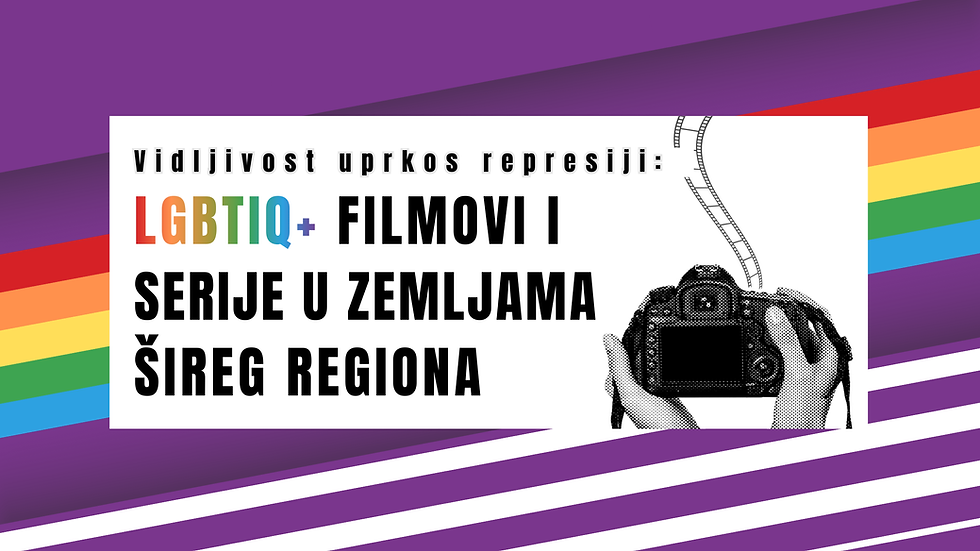LGBTI Writings: Evolution of the word "gay" in my head
- Oct 29, 2021
- 3 min read
The word gay has gone through many changes throughout history and has changed its meaning many times until it has become what it is today. Today, it has the role of designating a person who feels romantic and / or sexual attraction to the same sex and is mostly used by and for men. This word first appeared in the twelfth century, and its origin is most likely Old French. In the beginning, it only meant happiness or carefreeness, but later it gained an extension of its meaning. In some older series and movies the word gay can still be heard with its original meaning but it has become a rarity today.
In the fourteenth century, the word gay first gained its "bad" meaning. Then, for the first time, its meaning was connected with something that was more sexual and "immoral". Gay men became womanizers, gay women became sex workers, and houses owned by gay people became rooms where sex work was performed. These were the new meanings brought to us by the fourteenth century and a very important period for this word because for the first time its meaning began to move in the direction of signifying something bad and something not accepted in everyday life and society. In the fourteenth century, the word gay was given a pejorative and stigmatizing meaning.
Another meaning of the word gay that originated from this period was the meaning that represented men who engaged in sexual work and had male clients. After that, this word did not undergo much change until the twentieth century because it was then first used as it is used today. In a way, the word gay has stopped evolving and changing its meaning because it has the same meaning today as it did seventy years ago, but the additional negative meaning of this word can be discussed. And because of this it can be said that the evolution of this word never even stopped because in the urban vocabulary it never stopped evolving.
One could even say that the word gay has become a kind of slur that serves as an insult only to people who do not belong to the LGBTI community. Another type of insult created by this evolution is that the word is used in the LGBTI community as a measure of femininity in gay men, which may have autohomophobic connotations. Saying “you’re so gay” or “you’re more gay than me” are some examples of this beforementioned theory about how this word got its extra meaning. Since in some way the negative meaning has never left this word then it can be understood why negative associations occur when "gay" is mentioned. The worst thing is that there is no better word than gay. One can always say homosexual but because of the history of that word and because it has been used mostly by anti-gay extremists, it can be said that term is even worse. Gay, however, remains the best term for coming out because, compared to the word homosexual, it is "less problematic".
From my own experience I can say that I've always had some resistance when saying this word and that is why I would always use some of the above synonyms because then I could take it as a joke and in some way coming out would become easier. Saying gay was a formal way of coming out for me, and too serious for my taste. It can leave people in shock, but it can also leave them pleasantly surprised. With time and more use, I was able to learn to pronounce the word gay more easily, which made the process of coming out much easier.
Something I didn't like about the word at first was completely gone because saying it became routine over time.
The worst thing I had to work on while proccessing this 'hate' I had for the word gay is overcoming the beliefs and attitudes I created and absorbed from the society I grew up in. I believed it was an insult and that it had a negative meaning in any and every context it was used in. Luckily, I managed to understand the history behind the word "gay" and that its meaning isn't negative if the speaker isn't using it in a negative manner or with hateful meaning.
Author: Anonymous
This article was written as part of the project "Access to Justice for LGBTI persons in Tuzla Canton", which is funded by the Norwegian Helsinki Committee. The article does not necessarily express the views of the Norwegian Helsinki Committee, but only the author.




Comments